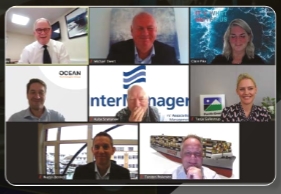The interntational campaign group has lined up proposals to improve shipping’s environmental record with a focus on owners and flag states.
An environmental ranking of flag states will embarrass poorly performing flag states and shine the spotlight on the shipowners who use them.
The WWF environmental lobby will highlight good and bad performing flag states, and ask poor performing ones to “shape up or ship out”.
Under a new “Shipshape” project to be launched in September, individual shipowners who use the poorer flag states could also be approached.
The “name and shame” proposals form part of a package of initiatives highlighted in the WWF’s “Accidents at Sea” report.
It argues that drawing attention to “irresponsible and badly performing flags” will motivate them to improve their standards or face a loss of business.
The Shipshape project will comprise a league table of flag states that will be promoted or relegated according to their environmental performance, says Jessica Battle of the WWF’s Geneva-based Global Marine Program.
States deemed to perform well, such as France and Norway, will be contrasted with worse performing nations and the data used “to gain a true picture of the state of world shipping”.
“Genuinely global standardised information regimes do not yet exist in this context, which can cause confusion, misinterpretation of data and allow potentially poorly performing
flags to slip through the net,” the WWF said. “This becomes more problematic when set against a growing global fleet and congested shipping in hotspot areas that increase the probability of accidents.”
The WWF report says it is important that shipowners have this information “so business choices can be made in an informed and transparent way”.
It identifies key accident hotspots for shipping such as the South China Sea and East Indies, the Eastern Mediterranean and Black Sea, North Sea and the British Isles.
Since 1999, the WWF has logged 293 shipping accidents in the South China Sea, home to the Coral Triangle and 76% of the world’s coral species.
The WWF argues that it is time to revisit the issue of which states can offer nationality to ships as this has implications with regard to jurisdiction and control of these vessels.
“The continued absence of performance standards and eligibility criteria for flag states calls into question the wisdom of the international community in allowing some vessel registries to continue to operate,” it said
Ultimately, greater focus needs to be directed to whether flag states are exercising effective jurisdiction and control over vessels that fly their flags, the WWF says.


